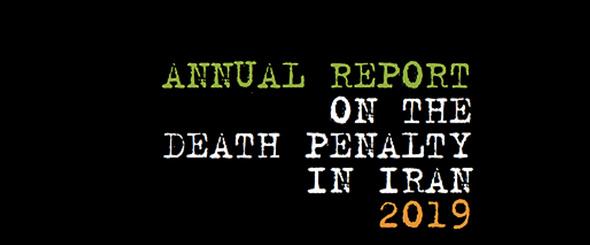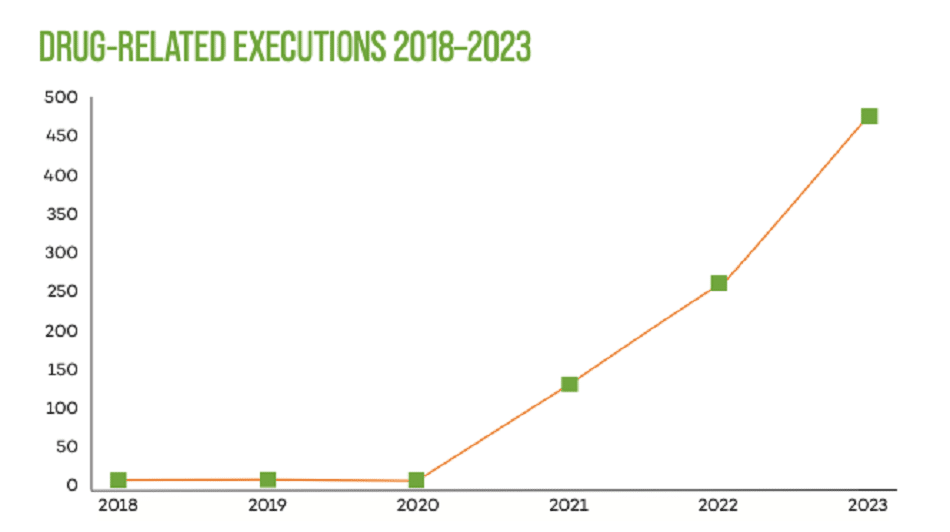
Iran: Annual report on the death penalty 2019
Report
Extract Iran Human Rights article published on 31 march 2020.
To read the full article on Iran Human Rights website click here.
THE FULL REPORT (pdf) is available here : https://iranhr.net/media/files/Rapport_iran-GB.pdf
2019 ANNUAL REPORT AT A GLANCE
- At least 280 people were executed in 2019, 7 more compared to 2018
- 84 executions (30%) were announced by official sources. In 2018 and 2017, respectively 34% and 21% had been announced by the authorities
- 70% of all executions included in the 2019 report, i.e. 196 executions, were not announced by the authorities
- At least 225 executions (80% of all executions) were for murder charges (it is the second-highest number in 10 years)
- At least 30 people (approximately 11%) were executed for drug-related charges
- 13 executions were conducted in public spaces
- At least 4 juvenile offenders were among those executed
- At least 15 women were executed
- At least 55 executions in 2019 and more than 3,581 executions since 2010 have been based on death sentences issued by the Revolutionary Courts
- At least 374 prisoners sentenced to death for murder charges were forgiven by the families of the murder victims – a significant increase compared to previous years
As in 2018, the majority of those executed in 2019 in Iran were charged with murder and sentenced to qisas (retribution in kind). At least 225 people were executed for murder charges in 2019. This is the second-highest number of annual qisas executions in the last 10 years.
Commenting on the Iranian authorities’ use of the qisas law, Mahmood Amiry-Moghaddam, Director of IHR, said: “Besides being an inhumane punishment, qisas represents a serious violation of the rights of the murder victims’ families who, from being victims of violence grieving for the loss of their loved ones, are converted by the state to executioners”. IHR and ECPM call for the removal of qisas from penal law and underline that punishment is the responsibility of states and not ordinary citizens.
In violation of their international obligations, the Iranian authorities continue executions of juvenile offenders. At least four juvenile offenders were executed in 2019 and several are in danger of execution.
More than 70% of the executions in this report were not announced by the Iranian authorities. Thus, the total number of executions, and the number of children executed in 2019, might be much higher than the figures presented in this report. Lack of transparency and accountability in the Iranian judicial system must also be addressed by the international community with regard to the bloody crackdown of the nationwide protests in November 2019. During the 3 days of protests in more than 100 cities across Iran, hundreds of people were shot to death by the security forces. IHR’s researchers have concluded that at least 324 people were killed, most of them as a result of bullets to their head, neck or chest, and at least 10,000 were arrested during and in the following few weeks. Reuters reported that 1,500 people were killed during the protests. However, the Iranian authorities still have not publicized the number of victims of the November protests, nor has anyone been held accountable for the killings. IHR has also received reports about the inhumane conditions under which those arrested have been held. ECPM, IHR and several other human rights NGOs have called for a special session of the UN Human Rights Council (HRC) to address the Iran protests and to appoint a UN fact-finding mission investigating the number of those killed, the situation of those arrested as a step towards holding those responsible for the crimes committed.
Iranian society has entered a new phase as people are struggling for fundamental changes. 2019 started with smaller protests and ended in the largest and bloodiest protests in Iran since the 1980s. There are no indications that the protests will stop at this point. IHR and ECPM are concerned that with increasing protests and anger among the people, the authorities will use even more violence, and above all will increase the use of the death penalty as their only and most efficient weapon to confront the unrest. The international community and especially Iran’s European dialogue partners must play a more proactive role in preventing the use of violence by the Iranian authorities against its own citizens.
With the launch of this report, IHR and ECPM call upon the international community, and Iran’s European dialogue partners, to press for a moratorium on the use of the death penalty and for major reforms in the country’s judicial system, which does not meet minimum international standards. Iranian leadership and all organs involved in the crackdown must be held accountable by the international community.
Categories
Iran (Islamic Republic of)






